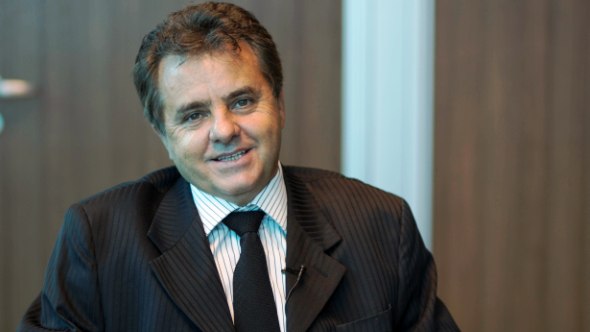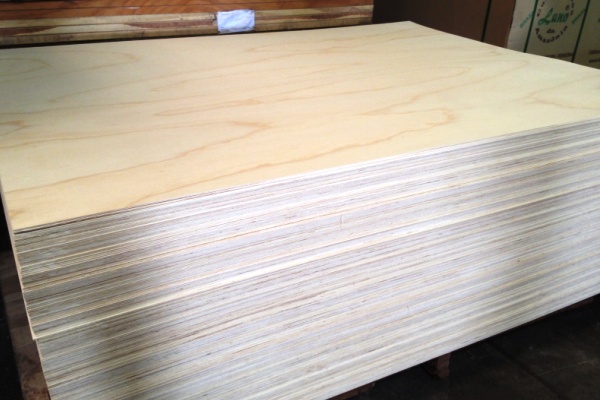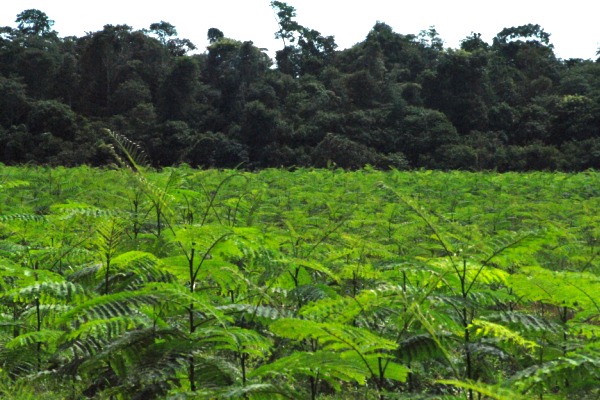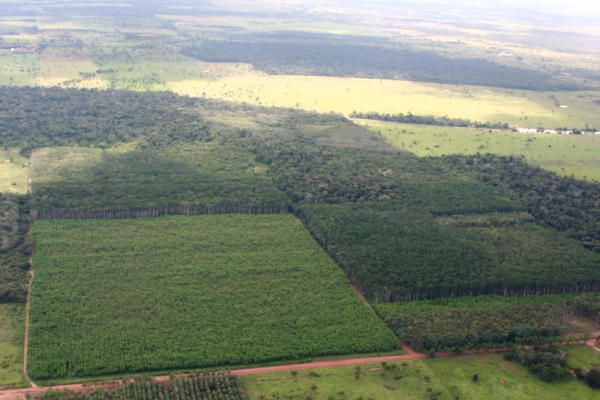Lano da Amazônia: Forestation and Sustainability in Rondônia
Ivo Gheller gives an overview on the sector of lamination, processing and industrialisation of plywood and laminated wood in Rondônia. He presents his lamination company, Lano da Amazônia, and discusses sustainability and investments in the state.

Let’s start with a brief introduction on the sector of lamination, processing and industrialisation of plywood and laminated wood.
In terms of investment, Rondônia is a young state that is experiencing excellent economic growth. It has been developing over the last couple of decades. Today it is a consolidated state. I would say to investors in agriculture, forestry or industry that this state is apt for all of these sectors.
The sector of lamination, processing and industrialisation of plywood and laminated wood in Rondônia has gone through a period of reasonable decadence over the last few years. There remained only a few strong companies that invested in reforestation areas and made plans for production zones in private areas and also native forests. The sector has obviously gone through many changes in terms of environmental awareness, legislation for the development of the state. The companies that did not adapt to these new regulations were not able to survive. I believe that in this state, this sector employs about 2 to 3 thousand direct employees just in the area of lamination.
What are the prospects for the development of this sector in 2013?
The idea is for this sector to continue in the same direction as in 2012. We have to be aware of the world financial crisis and of the demand for laminated wood products. It is quite a difficult time for this sector in terms of the market situation at the moment. A lot of it comes down to costs, our operational costs are high, especially the logistics of taking our products to the ports. We think that the market should be stable as it was in 2012.
What are the greatest challenges for this sector?
The greatest challenge in this young state of Rondônia is that many businesses have not invested in their industry or their factory. This is an industry where modernisation is crucial, you have to adapt to the environmental regulations, to become sustainable on both the international and national level. The only companies that will be able to continue in the future are those that have invested into their company, in areas of reforestation and that have made plans for the future.
Our state is a very promising one for forest development. We achieved 70% sustainability for this plantation period. We believe that the best way forward for the state, investors and this sector as a whole is to build awareness and encourage reforestation. A new project has been created between the state and SEDA called Arflora, and they are able to encourage the sector to replant the forest to ensure sustainability.
Could you introduce your company, Lano da Amazônia?
Our company was founded on 29th April 1996. But we have been working in the sector in Rondônia for 30 years, at the beginning we were working with sawed wood. We still have a part dedicated to this, but in 1996 we set up the business dealing with laminates and plywood. We began working with the internal and the external market. We adapted to the environmental legislation that is required all over the world, replanting trees for the sustainability of the industry. Today the company has 196 active employees within the factory. In previous years we used to have about 290 employees; it all depends on the market situation. The internal market represents 65% of the production and the remaining 35% is for export.
In terms of the internal market, in which states of Brazil do you operate? Also, could you tell us to which countries you export your products?
The majority of our products for the internal market goes to the state of São Paulo which has the highest capacity to absorb our production. We also distribute a small percentage to the states of Rio de Janeiro, Goiás and Minas Gerais, and obviously we sell within the state of Rondônia.
Our exports are mainly destined for Venezuela, the United States and Central America.
I understand that your export expansion plans have been put on hold a little bit at the moment, but can you tell us about potential expansion plans for the future? Do you hope to export to other countries?
Yes, although as I said before, it all depends on prices and costs. Today we are in a country where the economy is stable. We are still a bit out of phase with this stability as we still have elevated production costs and there are many tributary costs, etc. However, I think we have a broad horizon, we do have stability to export. When exports are not so stable, then we focus on the internal market. When we have the capacity for larger export deals then we export the largest quantity that we can because it is the most lucrative option.
Do you have plans to expand within Brazil?

No, we don’t. In fact we have reduced our production, we used to have a factory that covered a production of 2,000 m3 of raw material, but now we only have capacity for 900 m3. We are happy to supply the internal market and to export just a small quantity. For now this is necessary to ensure the sustainability of our company. We want our company to still exist here in Rondônia in 10 or 20 years to come.
What are the challenges faced by your company?
I think when you have a factory you have to be always thinking of your social and environmental responsibilities. Our challenges are often matters of bureaucracy.
I would say our greatest challenge is to ensure the continuity of our company, to ensure the stability of employment for our workers and our town. Our social responsibility is very important to us. We are really focused on this; to be able to ensure the sustainability of our industry. We feel confident that this can be achieved with hard work and education. We want to invest in the professionals and the workers to offer them security and good quality of life. In terms of the challenges of the market and sustainability, these are things that we are able to manage and deal with.
Is your company looking for partnerships with any other companies, whether national or international?
At the moment we are not looking to create any new partnership. We had partnerships in the past with other companies in terms of looking for resources and investment for reforestation plans. We are open to partnerships whereby both parties gain from the relationship, but mainly in the area of sustainability of the industry, for example environmental partnerships for new projects of reforestation and environmental schemes.
Talking of environmental preservation, it is a topic that is really important in the context of the current global affairs. How does this affect the day to day running of your company?
Our father was a great mentor to us in terms of environmental responsibility and awareness. He was the one who taught us that to be able to be sustainable in this industry we have to re-plant the forest and we have to invest in the forest.

What is your vision for the future of the company over the next 2 or 3 years? What is your dream for this company in the long term?
This company will continue modernising and adapting to the changes that we are seeing in this industry. We have to be part of the globalisation and modernisation. We are going to have to adapt to the economic changes that are happening in the world markets. We are capable of taking on these challenges and dealing with investors. We are a company that invests in itself, in its own resources, in modern machinery and reforestation. We overcome our challenges. We have our plans for sustainability and reforestation over the next 3 years already set out and in action; we are already recuperating areas for reforestation. Therefore we see the future of our company inherently linked to sustainability. In terms of large expansion prospects in this sector in the future, it all depends on the investment we make now in terms of plantation of forest areas to ensure the future of the industry.
To conclude, what would be your message to an investor who is thinking of investing in Brazil, and more specifically in Rondônia?
There are many areas with great opportunities here in Rondônia, but I will talk about my speciality which is the forestation. We have a tropical climate perfect for forestation. We have many areas in Rondônia that are degraded and need recuperation and reforestation. These investments that are going on today in this area can be complemented with new industries of laminates and plywood. I think that investing in the forestry base here in Rondônia would be a sound investment. As well as forestry for industry, there is also eucalyptus, and timber for the refrigeration industry and the grain industry which are growing here in this state. In this case it would not be dealing with native trees and so we would preserve our native forest and we would plant in these areas that are degraded at the moment. So I would very much say to anyone thinking of investing in forestry in the state of Rondônia that there are excellent opportunities for good returns. The market is opening up to be able to export laminates and there are excellent opportunities for selling timber to the industries that are starting up in this state. I would say that our native forests need to be protected and are being protected therefore the future of this industry lies in planted forestation.
Also, in terms of investment, Rondônia is a young state that is experiencing excellent economic growth. It has been developing over the last couple of decades. Today it is a consolidated state. I would say to investors in agriculture, forestry or industry that this state is apt for all of these sectors. We have seen the fruticulture industry grow as there is a thriving market for juices. This is a great state to take on new challenges and branch out into new things. In the northern region of Brazil, over the last two years Rondônia was one of the northern states that created the most jobs. It was an excellent example for the whole of the country and the world. And importantly this growth hasn’t been catastrophic for the environment; there has been lots of investment in reforestation and new technologies in agriculture and industry that have made great improvements. The state of Rondônia deserves special attention to be able to compete with other states and other countries.
